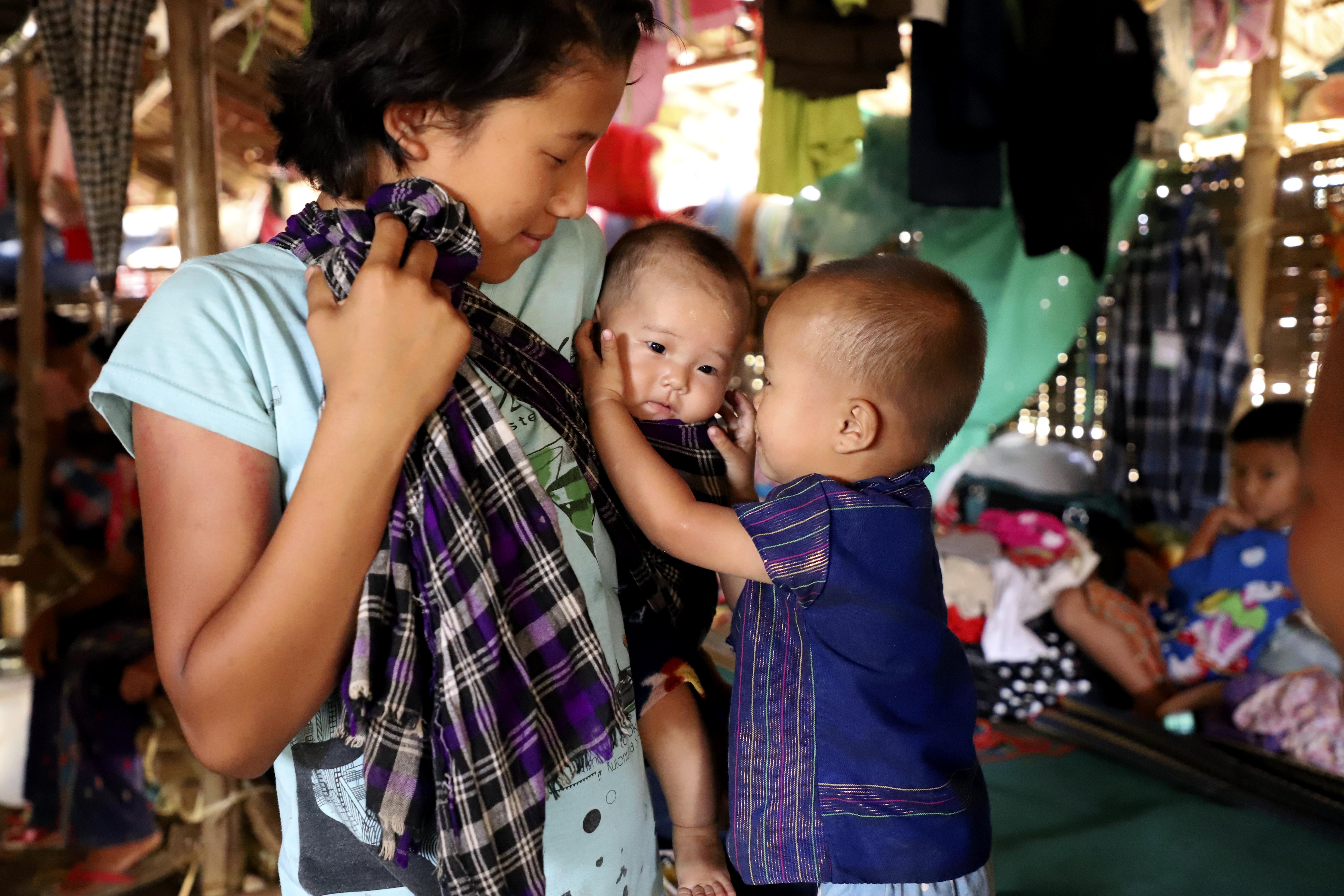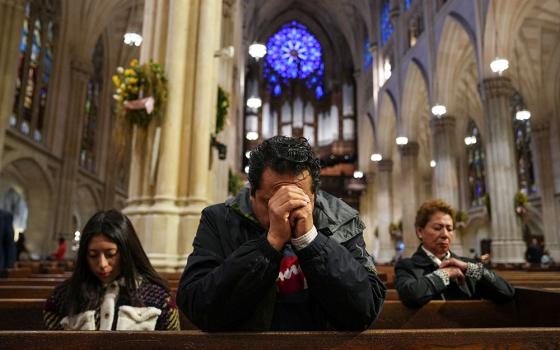
A displaced ethnic Kachin family is seen in early May at a temporary camp on the grounds of a Catholic church in Myitkyina, Myanmar. Myanmar's military still is persecuting ethnic Kachin, the predominant Christian group in a conflict-torn part of the country, as well as Rohingya Muslims, Cardinal Charles Maung Bo of Yangon said.(CNS/EPA/Seng Mai)
Myanmar's military continues to persecute ethnic Kachin, the predominant Christian group in a conflict-torn part of the country, as well as Rohingya Muslims, said Cardinal Charles Maung Bo of Yangon, Myanmar.
Speaking Sept. 1 at a peace forum in South Korea, Bo said the suffering the Rohingya have endured has captured the world's attention. He described their plight as an "appalling scar on the conscience of my country," ucanews.com reported.
Yet, he continued, other targeted groups are being overlooked as ethnic fighting rages on in northern Myanmar, with thousands of ethnic minorities having been injured, killed and displaced.
"Villages bombed and burned, women raped, churches destroyed, villagers used as human minesweepers and human shields," Bo told peace experts at the Catholic University of Korea in Seoul.
The cardinal elaborated on military air strikes in Kachin in February and a major offensive in April that led to more than 7,000 people being displaced.
He said a series of "wars" were being waged in Myanmar against those who espouse religious freedom by forces preaching religious intolerance and hatred.
Bo also lamented a several violent conflicts stemming from land ownership disputes and other concerns including human trafficking, environmental degradation, drug abuse by young people, poverty and a lack of protection of basic rights.
"These 'wars' continue even though Myanmar has moved over the past eight years through reforms and made a fragile transition from a military dictatorship to a fragile democracy," he said.
Sporadic fighting has occurred in the Christian stronghold of Kachin state since the country then known as Burma broke free of its colonial shackles in 1948 by gaining independence from British rule. The situation deteriorated in 2011 when some 100,000 people were displaced. Most of the state's 1.7 million Kachins are Christians, including 116,000 Catholics.
Bo said the military retains supreme power, especially in its control of three key ministries, while the civilian government has little or no effective control over its activities.
This, combined with rising Buddhist nationalism and militancy, has created a dangerous cocktail of hatred and repression that denies ethnic and religious minorities the "peace and human dignity" they deserve, he said.
Bo is known as a staunch campaigner for reconciliation in Myanmar, where peace negotiations with ethnic armed militias are ongoing and the Rohingya refugee crisis still is being settled.
Myanmar is facing harsh criticism over rights abuses in Rakhine state after a United Nations fact-finding mission found the military had committed gross human rights abuses in the state.
Bo also talked about establishing permanent peace on the Korean Peninsula amid a recent series of high-profile meetings between the leaders of South Korea, North Korea, the United States and China.
He said the dream of nuclear disarmament and denuclearization on the peninsula was possible and urged continued dialogue.
However, he added, true peace cannot be realized when North Koreans still are being stripped of their human rights and basic freedoms.
Advertisement
The U.N. has described leader Kim Jong Un's repressive policies as crimes against humanity. In North Korea, more than 100,000 people remain incarcerated in prison camps, subjected to the most severe forms of torture, slave labor and abuse, in an environment where religious freedom is completely lacking.
"Peace is born from the concept of human dignity," Bo said.
"Every human being, including those who hate us, is made in God's likeness. Hatred is taught through narratives of hatred. We can also teach every human soul to love," he added.
He said that while the respective situations in Myanmar and Korea are not exactly analogous, the principle objectives are similar.
The goal in both regions is "to build a lasting, genuine peace," he said, adding, "human dignity must be defended and injustice and impunity confronted."





